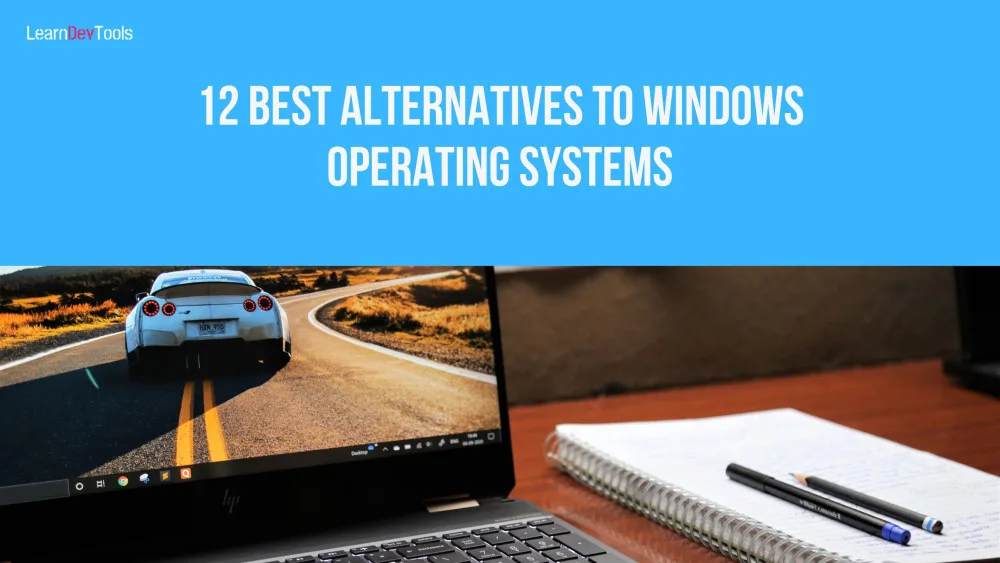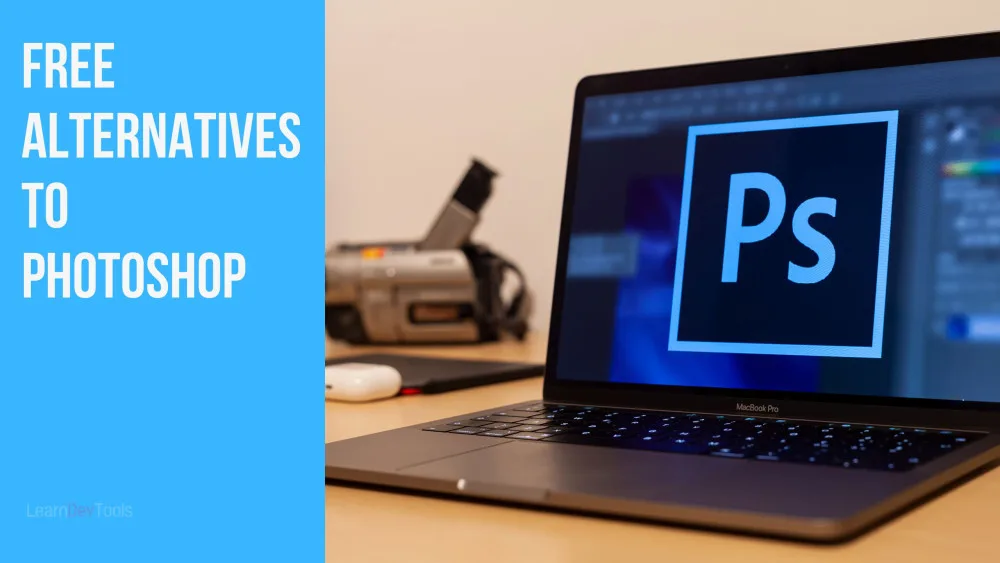It’s simple to forget that PC users have options because Windows Operating Systems absolutely dominate the desktop operating system industry. You may be shocked to know that many OS exist out there each ranging from general to more specific ones. The majority of them are completely free, and we’ve compiled a list of the top 12 Best Alternatives to Windows Operating Systems.
Best Windows Operating Systems Alternatives
- Linux
- Chrome OS
- ReactOS
- FreeDOS
- Elementary OS
- macOS
- Zorin OS
- AROS
- MenuetOS
- FreeBSD
- MorphOS
- Haiku
1. The Best Alternatives to Windows Operating Systems: Linux
Linux is the greatest free software OS accessible and a clear choice because it is cost-free, extensively used, and has a ton of online help.
You can try any of the most popular Linux distributions if you’re seeking a free replacement for Windows.
Numerous alternate versions of Linux have been made available due to its open-source nature. You’ve definitely heard of Linux Mint, a capable alternative to Ubuntu that can be great for beginners. These are just a few of the most widely used choices.
In short, Linux is the best free alternative to Windows Operating Systems since it is so incredible.
2. Chrome OS

This is another decision that seems somewhat evident. Google’s ChromeOS is based on Chromium OS, a free operating system that may be downloaded. It can be installed on outdated hardware as well.
One of the most well-known alternatives to Windows Operating Systems, ChromeOS is small and focuses on cloud computing.
Chromium OS is excellent for web browsing, social networking, and word processing because it offers everything you would find on a Chromebook. It is less skilled in playing back material, though, and is unable to modify media in any meaningful way.
Chromium OS is a decent free operating system for PCs if you’re searching for something simple to use. You can download a ready-to-install disk image from ArnoldTheBat or build it from the source.
3. The Clone Alternatives to Windows Operating Systems ReactOS

Consider ReactOS as your Windows Operating Systems alternative if you feel like Linux and UNIX alternatives make you uneasy.
ReactOS was initially developed as a Windows 95 clone project, and according to the company website, “the ultimate goal of ReactOS is to allow you to remove Windows and install ReactOS without the end user noticing the change.”
In a nutshell, the goal is for you to be able to continue using your PC normally. ReactOS is an open-source operating system with about 9 million lines of code.
ReactOS, though, has been in the alpha stage for a while and supports some apps, including Adobe Reader, but not all of them. But it’s not heavy; all it needs is 500 MB of hard drive space and 96 MB of RAM to function.
4. Best Alternatives to Windows Operating Systems Based on MS-DOS: FreeDOS

The idea of multitasking is at the heart of most contemporary operating systems. FreeDOS is unique. This DOS-compatible operating system is as dissimilar to Windows as it is possible to be because FreeDOS is built on MS-DOS, which was Windows’ forerunner.
FreeDOS is simple to connect to your network operating system that supports older games and programs. You may also install different software packages, including apps and games as well as utilities to improve the old DOS experience.
Both for restoring outdated data and for increasing productivity, FreeDOS is a great tool.
It makes no difference whether you use a contemporary desktop, an outdated computer, or a virtual machine to operate it. If you want a more conventional computer experience reminiscent of the 1980s and 1990s, FreeDOS is one of the fantastic Best Alternatives to Windows Operating Systems choice.
5. Elementary OS

Elementary OS is probably your best option if you want the macOS experience but don’t want a Hackintosh or genuine Apple hardware. Of course, this contains absolutely nothing of macOS. Additionally, Elementary OS’s creators claim that any surface-level similarities are coincidental.
Maybe it’s just that macOS and Elementary OS both adhere to the same design philosophy. So in reality, convergent evolution is at play here rather than someone stealing someone else’s ideas.
The ideals of immediate use, a relatively gentle learning curve, and little documentation are the foundations of Elementary OS.
The Pantheon desktop environment of Elementary OS is based on GNOME, while the operating system itself is based on Ubuntu.
But we’d contend that Elementary is among the most well-rounded and coherent Linux distributions we’ve ever come across. The user interface displays a level of attention to detail that is typically reserved for devices sporting a particular fruit emblem.
6. macOS

Yes, technically you can use macOS without having to buy an Apple machine. That’s not entirely accurate, though, as it is possible to build a “Hackintosh” in which macOS is loaded on a device made by a company other than Apple.
Of course, doing this is against the terms of the macOS license, and it also requires a very specific type of device to function. Additionally, since Apple is gradually discontinuing Intel-based Macs, Hackintosh machines will soon be a thing of the past, thus this door won’t remain open for very long.
However, if you purchase any Mac, including the most affordable MacBook Air or Mac Mini, macOS is already included at no extra cost and is a fantastic alternative to Windows Windows Operating Systems, providing exceptional reliability and supporting features.
7. Zorin OS

Yet another Linux distribution exists. Zorin OS is also unique from all others. The designers of Zorin place a lot of emphasis on facilitating a smooth switchover for both current macOS and Windows users. By integrating desktop-style templates that resemble Windows, macOS, or Ubuntu, they have cleverly accomplished this.
Zorin is based on Ubuntu and uses XFCE 4 or GNOME 3 with significant modifications as its graphical user interface. Users can continue utilizing the games and programs they are accustomed to using on Windows thanks to Zorin OS’s easy installation and configuration of WINE and PlayOnLinux.
You’re just as likely to need Terminal commands in Zorin OS as you are in Windows or macOS even if Zorin OS reduced or completely removed the use of the Linux Terminal.
8. A Free Alternative to Windows Operating Sytems: AROS
Although it was created for x86 platforms, AROS is a free operating system with a history comparable to that of MorphOS. This indicates that it ought to work on your computer.
Be aware that, despite having a 3.5-inch drive, a current PC will not be able to read old Amiga discs. You will therefore be restricted to ROMs.
Nevertheless, this presents a compelling Windows alternative. To get a solid sense of this free operating system for PCs, try the AROS Live CD version.
9. MenuetOS

MenuetOS is a free operating system that can be installed on a single floppy disk and is accessible for hardware running on 32-bit and 64-bit architectures. Just to be clear, that’s one 1.4MB floppy disk.
Amazingly, it comes with a full GUI desktop, a browser, a media player, and a spreadsheet editor pre-installed. MenuetOS, which was developed in Assembly language, can handle resolutions up to 1920×1080 (16 million colors) and supports USB cameras.
Along with an email client, FTP server, and HTTP server, there are also some well-known games included. There isn’t a floppy drive? Additionally, CDs and USB drives can be used to start MenuetOS.
10. FreeBSD
Some people believe that FreeBSD is merely another Linux distribution. The contemporary open-source variation of the Berkeley Software Distribution (BSD), FreeBSD shares the same Unix-like foundations as Linux. Consider FreeBSD to be a distant relative of Linux; you can get its source code in numerous places. These include Sony’s PlayStation 4 operating system and Apple’s macOS.
All things considered, FreeBSD is a dependable alternate operating system for both servers and PCs. While GNOME, KDE, and XFCE desktop environments are supported, it does not come with one by default. These BSD-based operating systems are some of the best ever.
Given the improvements provided by the TrustedBSD project, FreeBSD may be of interest to folks who have security and privacy concerns. The University of Cambridge Computer Laboratory, Apple, DARPA, Google, McAfee, and many more organizations support this.
11. MorphOS: An Alternative OS for Dead Macs

For PowerPC and comparable devices, MorphOS is an operating system that resembles the Amiga and is based on home computers from the 1980s and 1990s. While it’s unlikely that an ancient Windows PC will have a PowerPC processor, MorphOS will work on vintage Macs.
However, a Windows alternative can be helpful if your Mac experience came to an end when Apple switched to x86 CPUs. It’s time to get out the old Power Mac, Mac Mini, or iMac!
12. Haiku
First released in 2001, Haiku is a free and open-source software program. Since then, this open-source operating system has been updated frequently and supports a wide range of applications. Numerous programs from the defunct BeOS operating system, including VLC Media Player and Quake, will also work on Haiku.
Which Alternative to Windows is Open-Sourced?
- Linux
- Elementary OS
- ReactOS
- FreeBSD
- Zorin OS
Which Alternatives to Windows OS is Proprietary
- macOS
- Chrome OS
Although not all will meet your precise needs, we’re confident you’ll find a new OS you’ll come to appreciate.
You might be interested in learning more about Linux alternatives to some common Windows software if you’re looking for a Windows alternative.
Get more from Learn Dev Tools:
- 14 Best CSS Frameworks You Should Start Using Today
- All You Need to Know About SEO Content Writing
- Creating a Custom API with Strapi
- What is an API Gateway? An Easy Beginner’s Guide
- Best Alternatives to Airbnb App You Should Build Today
- 16 Essential Tips to Learn Javascript
- Increase Productivity with These 10 Free Google Chrome Extensions
- The Beginner’s Guide to Machine Learning: How to Get Started
Don’t you want to miss any future updates from Learn Dev Tools? Then sign up for our newsletter below 👇







